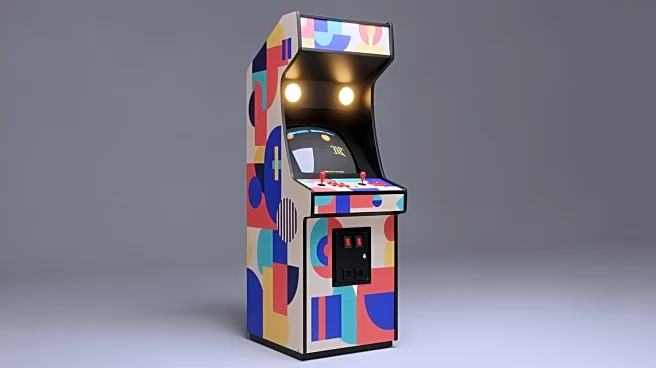What's Happening?
The Poly-Play arcade cabinet, produced in 1985 by VEB Polytechnik Karl-Marx-Stadt, stands as East Germany's sole foray into arcade gaming. This unique machine, crafted from repurposed parts like a German TV set, offered eight games, including 'Hirschjagd'
and 'Wasserrohrbruch'. Despite its limited production of around 2,000 units, the Poly-Play was a significant cultural artifact, reflecting the GDR's interest in integrating computing and gaming into society. The cabinet was a product of its time, showcasing the socialist bloc's aspirations to foster a new generation of engineers through exposure to technology and gaming.
Why It's Important?
The Poly-Play cabinet represents a unique intersection of technology and ideology during the Cold War. It highlights the GDR's attempt to use gaming as a tool for education and cultural development, contrasting with Western perceptions of video games at the time. This initiative underscores the broader geopolitical competition in technological advancement between the East and West. The cabinet's existence also illustrates the resourcefulness of East German engineers in circumventing trade embargoes to produce technology. For historians and gaming enthusiasts, the Poly-Play offers insights into the cultural and technological landscape of the socialist bloc.
What's Next?
Interest in retro gaming and historical technology could lead to increased efforts to preserve and study machines like the Poly-Play. Emulators and digital archives may play a crucial role in making these games accessible to a wider audience, allowing for a deeper understanding of their historical context. Additionally, the Poly-Play's story may inspire further exploration into how other socialist countries approached gaming and technology during the Cold War.
Beyond the Headlines
The Poly-Play's story raises questions about the role of technology in cultural diplomacy and ideological competition. It also prompts reflection on how gaming can be used as a tool for education and socialization, a concept that remains relevant today. The cabinet's legacy may influence contemporary discussions on the cultural impact of gaming and the preservation of digital heritage.
















